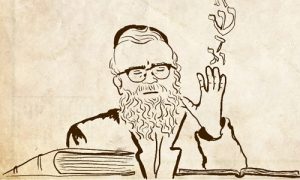 In the Torah It is written that God himself mentioned the human quality of Moses:
In the Torah It is written that God himself mentioned the human quality of Moses:
בכל ביתי נאמן הוא.
“..Of all My house, he is most faithful to him ..”.
The word translated here by faithful is Né’eman. נאמן
It is a word that has the same root as the word “Amen”. In another passage it is the humility of Moses which is highlighted:
והאיש משה עניו מאד מכל האדם אשר על פני האדמה
“The Moses man was the most humble of human beings ..”
These qualities are not mentioned to speak to us of the personal character of the Prophet which are beyond the apprehension of the common human being.
They are highlighted to inspire the acquisition of these qualities by all.
We could consider that these texts, in addition to the other interpretations which one can mention, highlight the essential distinction to be made between ease and effort.
This question is essential today in our relations to technology and consumerism.
The way we are presented too often is related to their ease of access.
Whether it is technology clothing food or education, the infantilizing road of ease is presented to us as saving, when it is potentially dangerous in all these areas.
On the other hand, obstacles are deliberately placed on the path, when we seek to see further that the enticing display case. Moses the Prophet of the Law embodied the instructive idea of personal effort which requires both humility in the face of the immensity of the task, and at the same time fidelity not to abandon it. This task is the liberation of our minds from the chains of mental slavery, which trap us in a reductionist idea of our true aspirations, and sends back to us the rigged image of our inability to make a good choice.
Resistance to selfishness is done by עונה humility which accepts complexity.
And resistance to ease is achieved by נאמנות fidelity to the task of constant research.
